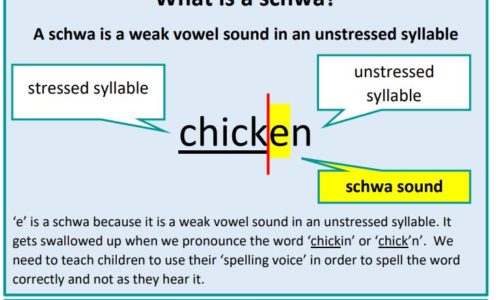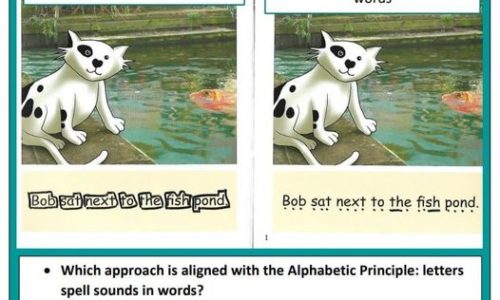
What is a schwa sound? And, did you know it is the most common sound in the English language? A schwa sound is a weak vowel sound in an unstressed syllable. Here is an explanation: Most multisyllabic words in English are pronounced with a stress on one syllable. Take the word ‘chicken’ the stress in […]
Read More

